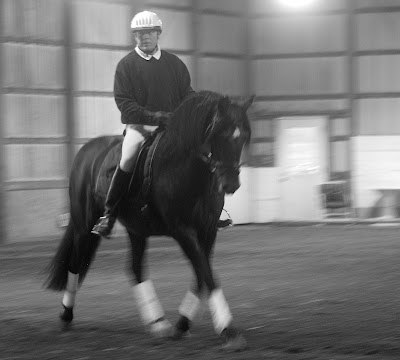It is sad to see folks like British rider Lottie Frye with her Everdale competing at Amsterdam CDI receiving some significantly bad press and attack over her training style, and Cesar Parra, another Olympian this time representing Columbia who works in the U.S.A, subject to the same.
Lottie Frye went from hero to zero in short order, the horse showcasing some telling signs that the training methods employed on the equine, who I'm sure is nonetheless much loved by Frye, are perhaps not the kindest. And from a classical dressage exhibit standpoint, certainly not correct and true. But the judges certainly rewarded it, placing her 1st.
 | |||
| We all love our horses, but our actions speak louder than words |
The reality is that whether the alleged activities of applying screws to horse's mouths such as mentioned in the FEI suspension of Parra, or the inevitable topic of rollkür training techniques are back, it seems that elite riders are still being rewarded for the results of those methods.
If, we, as the dressage community, particularly those at the top of the sport, don't start self-policing and stop rewarding such behaviors they simply are not going to stop. Folks can spout all they like about putting the horse first, but what they say and what they do are clearly quite different things.
True connection with the horse, both figuratively and literally cannot be attained by force or by abuse. Dressage was headed down the wrong path before, it was better for a while. The road back to promotion of good, classical dressage training was mostly due to folks like Carl Hester and Charlotte DuJardin (also British team members), and another one of my favorites, American Kasey Perry-Glass.
The question is, why are the judges going backwards? Regressing into rewarding the evident shortcuts and questionable training methods employed at some of the top private yards in the world?
Trickle down dressage is truly a thing, and where bad ethics and behavior is rewarded as good dressage riding, certainly many will blindly follow. Just as they did before in the days of Anky and Nicole. Even the highly acclaimed Isabell Werth turned her training around since those days decades ago, where such 'new' approaches were commonly utilized in one form or another.
It is hard to understand the turn around that we are currently seeing in the judging of dressage at the heady levels of international competition. But one thing is for certain. The road to the sport of dressage being kept as an Olympic sport, or heralded as all that it is as a true, deep, connection between man and horse like no other will be severely impacted by those deep, confined connections that these elite riders are employing..
At our Willowview Hill Farm, you can be certain that we will continue to train the way we have for decades. Honoring the classicists and honoring our horses and their trust in us.
 |
| Paul Alvin-Smith schooling a young Andalusian stallion. |
Comments
Post a Comment